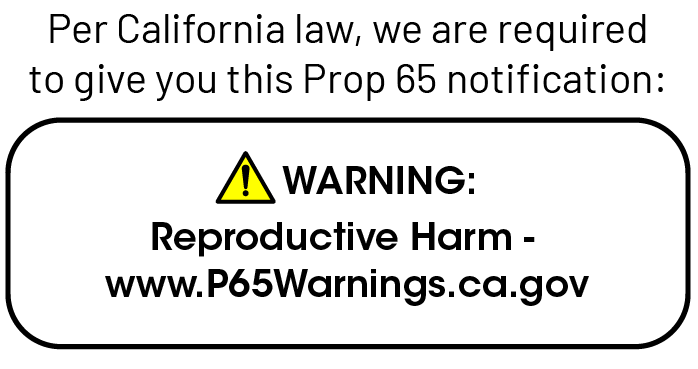What You Need To Know About Hyaluronic Acid | Skin Actives
Posted by Dr. Hannah Sivak and Brendan Leonard on Aug 7th 2020
Hyaluronic Acid is a great active that is experiencing a lot of buzz right now.
This is no surprise to us at Skin Actives, we based our business around provable scientific reactions. It’s only recently that skin care marketing has pivoted to the facing that we have always maintained: put the active ingredient out in front! That’s what’s doing all the work!
But all that having been said, let’s clarify a point about hyaluronic acid and how it works.
Hyaluronic acid occurs naturally inside your skin.
Hyaluronic acid can also be applied topically to your skin.
BUT
Maintaining the hyaluronic acid your skin manufactures is a different process, that has different benefits, from applying hyaluronic acid topically.
Preserving the Hyaluronic Acid INSIDE Your Skin
So, since we have established that the hyaluronic acid in your skin has value to your health, and that the health benefits you gain from this source are unique, how do you take care of the hyaluronic acid inside your skin?
- Epidermal Growth Factor - EGF is an active that promotes hyaluronic acid synthesis inside your skin. This is a natural process that your body is already doing, but like many things, it decreases with age and damage. Use EGF to kickstart natural processes back into action.
- Avoid Break Down - Some ingredients can lead to a breakdown of hyaluronic acid in your skin. Ingredients like copper and salt may be good for certain things, but will work against your hyaluronic acid production over time. If you are focusing on hyaluronic acid as part of your regimen, maybe avoid those ingredients.
- Be Mindful of UV - We really can’t stress this enough: UV radiation leads to the loss of hyaluronic acid and basically all other symptoms of skin aging. If you want to take care of your skin, limit your exposure to harmful UV rays. And please, wear sunscreen daily!
- Feed Your Skin! That’s right, your skin is hungry and thirsty for nutrients! So, just like your own diet, you need to be careful what you feed it. Use your skin care ritual to provide sources of energy and carbon to empower your skin in making its own hyaluronic acid. Our Collagen Serum is an all-time great for this, and you can use our Hyaluronic Acid Moisturizer in this capacity too. As we age, our body deprioritizes our skin over other internal concerns. Both of these products contain hyaluronic acid as well as several other key nutrients for the complete package. We’re left to pick up this slack with our ever increasing knowledge of skin health. Skin nutrition is key to skin health, there, we said it!
Benefits of Topical Hyaluronic Acid
Now that we understand how to take care of the hyaluronic acid that your body produces naturally, let’s explore some of the reasons why application of hyaluronic acid to your skin is still a good idea.
- Moisturizing - The molecular structure of hyaluronic acid was designed by nature to make it great at retaining water. Extra water retention means that your skin is more hydrated.
- Hypoallergenic - Everyone is different, of course, but you are very unlikely to be allergic to hyaluronic acid, or develop an allergy to it. This is because it occurs naturally inside of you.
- Firming - Our Hyaluronic Acid Gel will provide you with a temporary “lift” because the gel will dry as a film, stretching the skin.
- Wound Care - Topical hyaluronic acid has been shown in studies to influence the care of burns, bedsores, wounds, and skin ulcers. Keep in mind that the context of these findings is aftercare and you should never apply a skin care product to an open or infected wound. If you are suffering from an open or grievous wound, please seek care from a physician or licensed healthcare professional.
We’ve Got You Covered
Now that you understand how topical hyaluronic acid application benefits your skin, you might be looking for some products to help you achieve these results. Naturally, Skin Actives is here with a range of products to address your specific needs.
- Hyaluronic Acid Moisturizer - This nourishing cream is dense in nutrients and other actives so it will take you a long way with your skin care goals. Replete with sea kelp bioferment, hydrolyzed collagen and coenzyme Q10, this moisturizing cream is one of our all time bestsellers.
- Hyaluronic Acid Serum - This serum utilizes many of the same active ingredients as Hyaluronic Acid Moisturizer. The difference? It works at a different step in your skin care routine. Add this in as a targeted layer of water based serum before locking it in with your final cream or sunscreen.
- Hyaluronic Acid Gel - For those who struggle with sensitive skin, we present Hyaluronic Acid Gel! This unique water based gel keeps its ingredients to an absolute minimum so you can steer clear of allergic reactions. This gel also makes a great base to add some of your favorite ingredients into.
The Limits of Topical Hyaluronic Acid
If your skin feels extremely dry, scaly, rough or cracked, hyaluronic acid may not be right for you. If what you need is softening and your skin feels dry, you may be better off with a lipid-based serum.
For alleviating severely dry skin problems, start with our Every Lipid Serum. ELS will also hydrate your skin in a different way: by adding emolliency, preventing water loss from the skin by adding that extra thin layer of oils.
A Note to the Vegans Members of Our Skin Actives Family: The hyaluronic acid used by Skin Actives is obtained by fermentation. It is NOT extracted from animals! You can use several of our hyaluronic acid products freely while maintaining your ethical lifestyle. Check out our full vegan offering here.

